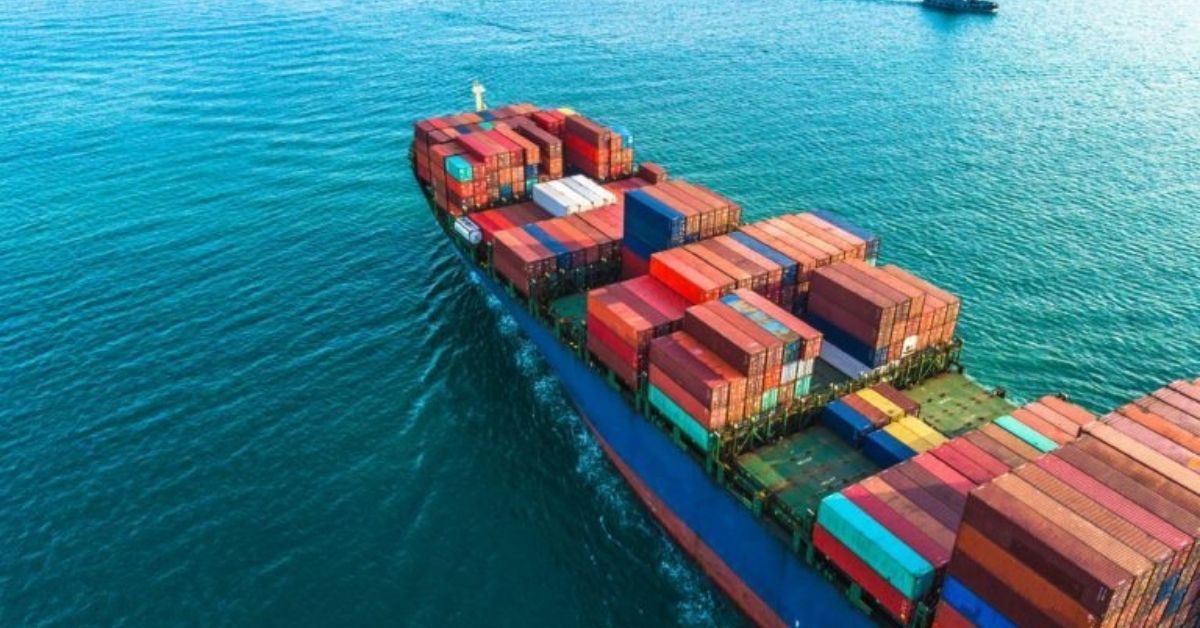President Joe Biden signed legislation on Thursday aimed at lowering the cost of international shipping, touting it as another step in his administration’s efforts to combat chronic inflation.
At a signing ceremony, the president stated that the measure will prevent “shipping firms from taking advantage of American families, farmers, ranchers, and businesses.” The shipping policy aims to reduce supply-chain bottlenecks at sea, which were aggravated by the pandemic’s surge in demand. It requires the Federal Maritime Commission to review late fees levied by shippers and to restrain ocean carriers from refusing to fill free cargo space with US exports without cause.
“They raked in the profits and the costs got passed on, as you might guess, directly to consumers,” he added. “Sticking it to American families and businesses because they could.”
Biden said the law would “at least marginally” reduce inflation. It doesn’t directly address elevated shipping costs that American importers and exporters have long complained are the heart of the problem, though backers of the bill predicetd it would have an overall chilling effect on prices.
“One of the factors affecting prices is this: nine major shipping companies consolidated into three alliances controlling the vast majority, mostly shipping in the world,” Biden said. “And each of these nine is foreign-owned. During the pandemic, these carriers increased their prices by as much as 1,000%.”
American importers and exporters say that Asia- and Europe-based firms controlling 80% of global seaborne capacity are immune from US antitrust laws and need to be held accountable for pandemic-driven cost increases, an argument the White House has embraced.
Contradicting the claims made by the President, World Shipping Council said, “As long as America’s ports, rail yards and warehouses remain overloaded and unable to cope with the increased trade levels, vessels will remain stuck outside ports to the detriment of importers as well as exporters,” the WSC said. “Ocean carriers continue to move record volumes of cargo for our country and have invested heavily in new capacity — America needs to make the same commitment and invest in its land-side logistics infrastructure.”
Biden has sought to assure Americans that inflation is his priority after consumer prices soared 8.6% in May from a year earlier, while fears intensify of a recession on the horizon.
During a visit last week to the Port of Los Angeles, the US’s busiest maritime hub, Biden said foreign shippers need to understand “the rip-off is over.”
High prices to ship containers of goods have driven inflation for imports and sapped profits of exporters, including farmers, said Senator Amy Klobuchar, the bill’s sponsor.
“The goal is lower prices. We must bring prices down,” she said. “I think the effect will be more immediate than the actual rules, when the rules take effect, because the shipping conglomerates know this is coming.”
Yet FMC Chairman Dan Maffei acknowledged that the legislation “isn’t the be-all and end-all, it’s not everything we asked for.”
Speaking Wednesday at a conference in Tacoma, Washington, Maffei said, “There’s stuff missing. We want more stuff in the future.”
Maffei said that the law will address some key complaints, such as forcing carriers to take US exports instead of sending ships sprinting back to Asia with empty containers in order to load more US-bound goods faster. “That hurts the entire economy, but especially hurts our farmers who depend on ocean shipping to sell their products to customers overseas,” Biden said.








